 Senior Fellow
Senior Fellow
[email protected]
Washington DC
202.601.2351
Activities
Miles Pomper is a Senior Fellow in the Washington DC office of CNS. His work focuses on nuclear energy, nuclear nonproliferation, nuclear security, and nuclear arms control. He holds a master’s degree in international affairs from Columbia University and a master’s degree in journalism from Northwestern University.
Areas of Research
- Nuclear energy
- Nuclear nonproliferation and arms control
- Nuclear security
Background
Before joining CNS he served as Editor-in-Chief of Arms Control Today from 2003-2009. Previously, he was the lead foreign policy reporter for CQ Weekly and Legi-Slate News Service, where he covered the full range of national security issues before Congress, and a Foreign Service Officer with the US Information Agency.
Education
- BA in History from Columbia University
- MA in international affairs from Columbia University
- MA in journalism from Northwestern University
CNS Work
- Nuclear Weapons and Iran’s Uranium Enrichment Program: 4 Questions Answered
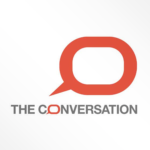 Why uranium enrichment is central to both peaceful nuclear energy programs and building nuclear weapons.
Why uranium enrichment is central to both peaceful nuclear energy programs and building nuclear weapons. - OP #46: Options for a Verifiable Freeze on North Korea’s Missile Programs
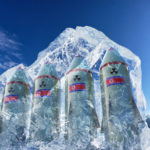 Freezing North Korea’s missile program can be a first step toward promoting trust and providing concrete security benefits.
Freezing North Korea’s missile program can be a first step toward promoting trust and providing concrete security benefits. - China Has Big Plans for Its Nuclear Energy Industry. But Will They Pan Out?
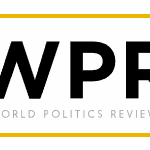 China is increasingly viewed less as the salvation of the Western nuclear power industry, and more as a competitive threat.
China is increasingly viewed less as the salvation of the Western nuclear power industry, and more as a competitive threat. - Options for a Verifiable Freeze on North Korea’s Missile Program
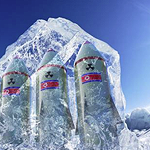 EVENT: Panel Discussion with CNS experts to discuss verification requirements and security benefits associated with each option.
EVENT: Panel Discussion with CNS experts to discuss verification requirements and security benefits associated with each option. - OP #43: North Korea’s International Scientific Collaborations: Their Scope, Scale, and Potential Dual-Use and Military Significance
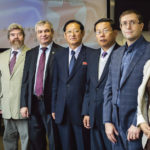 International scientific collaborations are helping North Korea advance its technology.
International scientific collaborations are helping North Korea advance its technology. - OP #42: The Other Fissile Material: Strengthening National and International Plutonium Management Approaches
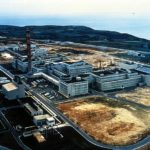 Recommendations to avoid risks posed by existing and potential reprocessing programs.
Recommendations to avoid risks posed by existing and potential reprocessing programs. - It Is Time to Update the President’s Nuclear Command Authority
 Increased oversight, under the right circumstances, would decrease the risk of any US president using nuclear weapons preemptively or without just cause.
Increased oversight, under the right circumstances, would decrease the risk of any US president using nuclear weapons preemptively or without just cause. - Radioactive Material is Still Missing in Malaysia: Cause for Concern?
 This material could be used to build a radiological dispersal device (RDD), commonly known as a “dirty bomb.”
This material could be used to build a radiological dispersal device (RDD), commonly known as a “dirty bomb.” - CNS Experts Respond to the US Withdrawal from the Iran Deal
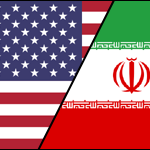 An “ill-conceived” decision “of potentially historic proportion.”
An “ill-conceived” decision “of potentially historic proportion.” - A Carrot-and-Stick Approach to Resolve the INF Treaty Crisis
 For 30 years, the INF treaty has proved to be a cornerstone of European security.
For 30 years, the INF treaty has proved to be a cornerstone of European security.
Select Bibliography (Recent)
- “The Proliferation of Weapons of Mass Destruction in the Modern World: Trends and Changing Regimes,” in International Politics in Times of Change, Nicholas Tzidakis, Ed. Springer 2012.
- “How to Unsnag US-South Korea Nuclear Negotiations,” Bulletin of the Atomic Scientists, September 25, 2012.
- “Nuclear Power and Proliferation: The Risks of the Nuclear Renaissance,” in Nuclear Power and Energy Security in Asia, Rajesh Basrur, Cole Harvey, Koh Swee Lean Collin, eds., (New York, NY: Routledge, 2012).
- “The Seoul Nuclear Security Summit: How Much of a Success?” Academic Paper Series, Korea Economic Institute, May 23, 2012.
- “Domestic and International Politics of Spent Fuel in South Korea: Are We Approaching Meltdown?” with Seong-Won Park and Lawrence Scheinman, Academic Paper Series: On Korea, Vol. 4, Korea Economic Institute, 2011.
- “Going Global: Issues Facing South Korea as an Emerging Nuclear Exporter,” with Chen Kane and Stephanie Lieggi, Tomorrow’s Northeast Asia: Joint US-Korea Academic Studies, Volume 21, Korea Economic Institute, 2011.
- “The IAEA’s Political Balancing Act,” with Michelle Dover, World Politics Review, September 2011.
- “Bringing Belarus Back to the Table,” WMD Junction, September 20, 2011.
- “Toward the Global Norm: Supporting the Minimization of Highly Enriched Uranium in the Civilian Sector,” with Cole J. Harvey and David Slungaard, Issue Brief No. 12, Asan Institute, June 2011.
- “Japan’s Nuclear Crisis: The Fine Line between Security and Insecurity,” Bulletin of the Atomic Scientists, March 22, 2011.
- “Nuclear Power and Spent Fuel in East Asia: Balancing Energy, Politics and Nonproliferation,” with Ferenc Dalnoki-Veress, Stephanie Lieggi, and Lawrence Scheinman, The Asia-Pacific Journal vol. 25, June 21, 2010.
- “US International Nuclear Energy Policy: Change and Continuity,” Nuclear Energy Futures Paper #10, Centre for International Governance Innovation, January 2010.
- “Reducing and Regulating Tactical (Nonstrategic) Nuclear Weapons in Europe: Moving Forward?” with Johan Bergenas, William Potter, and Nikolai Sokov, April 2010.
- “Managing U.S. Missile Defenses and Russian Concerns,” with Dennis Gormley and Nikolai Sokov, Four Emerging Issues in Arms Control, Disarmament, and Nonproliferation: Opportunities for German Leadership, James Martin Center for Nonproliferation Studies, July 14, 2009.
- “Reducing and Regulating Tactical (Nonstrategic) Nuclear Weapons in Europe,” with William Potter and Nikolai Sokov, December 2009.
- “The Russian Nuclear Industry: Status and Prospects,” Nuclear Energy Futures Paper #3, Centre for International Governance Innovation, January 2009.
- “Congress, Culture, and the Caspian,” with David King, in The Limits to Culture: Foreign Policy, Islam, and the Caspian, Brenda Shaffer, ed., (Cambridge, MA: Belfer Center for Science and International Affairs, 2006).
